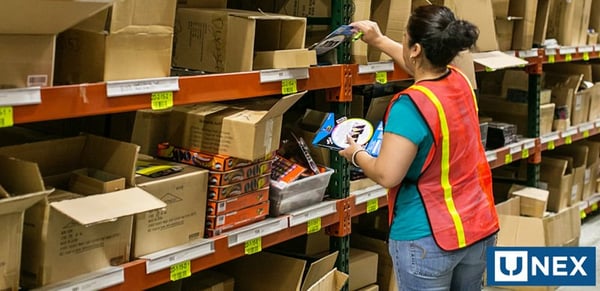Back-to-School Supply Chain: Is It Doing Its Homework?
Now that the bulk of the summer has come and gone, the heat is on! We're not just talking about the weather (although that’s pretty hot, too); we mean the stampede toward back-to-school (BTS) sales and savings, a family spending spree that’s made back to school – along with back-to-college (BTC) – the second-largest annual sales event in the country. Although the season still ends around Labor Day, each year BTS seems to start a little earlier, especially when you factor in online research, product comparisons and review, and purchase planning.

And unlike most recent retail trends, school supply shoppers are a little more old-school, tending to prefer brick-and-mortar shopping and spending about $288 USD in store, on average, compared to $103 online, according to Deloitte’s 10th annual back-to-school survey (in 2017). Not all retailers enjoy an equal increase in BTS foot traffic or sales, however. Deloitte found, “Mass merchants and off-price retailers are becoming the go-to venues while traditional department stores and specialty clothing retailers take a back seat.”
Specifically, of the survey’s respondents:
• 81% planned to shop mass merchants, a 24% increase over 2016
• 28% planned to shop at off-price stores, up from 10% in 2016
• 28% will ship traditional department stores, down from 54% in 2016
• 8% will shop specialty clothing stores, a huge drop from 2016’s 25%.
So what are the parents and students who make up these 29 million households buying for back-to-school? Deloitte reports, “Clothing and accessories are expected to account for 55 percent of families’ spending – up 10 percentage points from last year. Meanwhile, computers and hardware will take up just 14 percent of the spending; this is four percent lower than last year.”
Of course, online sales are still a strong and steady BTS channel, especially for education basics like computers and tech gadgets, calculators and backpacks. According to NRF’s figures, 44% of BTS shoppers plan to spend online, roughly the same percentage as the previous year.
Deloitte found that 71% of sales occur between early July and late August. But as it turns out, the earlier shoppers – those who start BTS shopping before August – spend about 16% more than those who start in August or later, so retailers who have BTS items available online or on shelves earlier in the summer have the opportunity to generate higher sales.
All those statistics add up to one universal lesson: Online or in-store, BTS shoppers are looking for the best deals – on products, promotions, prices, and delivery – and seamless shopping experiences. Does that ring a bell? Regardless of channel, the pass/fail ratio depends on the supply chain.
UNEX Manufacturing works with top retail organizations to create efficient and effective fulfillment processes to ensure products are on retailers’ shelves at the right time with the right quantities of inventory. With increased demand for certain school-related products, it is imperative that retailers and distributors have their warehouses in top working condition to speed products out the door. Contact your UNEX Pickologist today to learn how.
